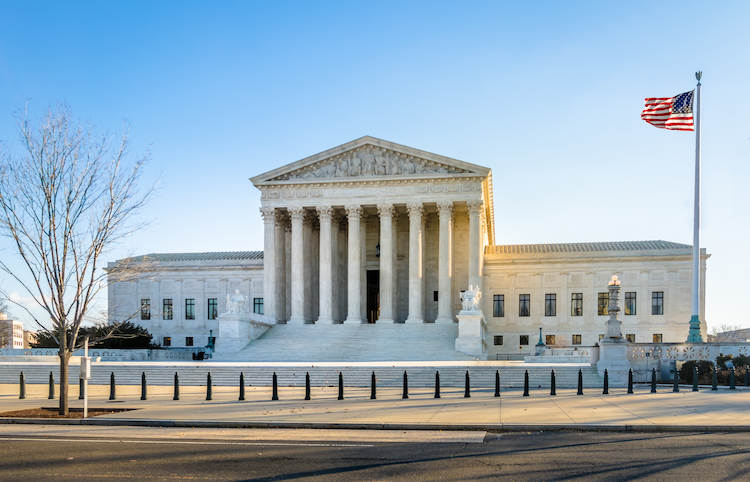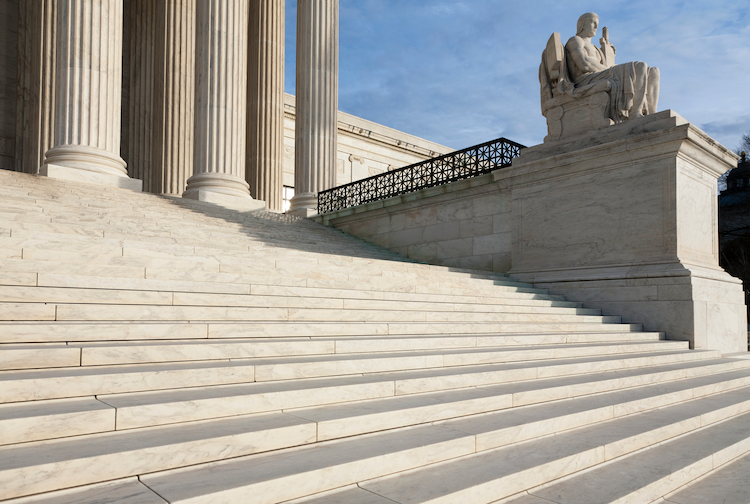Justice Gorsuch Authors First Opinion in FDCPA Case

In Henson v. Santander Consumer USA, Inc., 582 U. S. ____ (2017), the U.S. Supreme Court unanimously held that a company may collect debts that it purchased for its own account without triggering the statutory definition of a “debt collector” under the Fair Debt Collection Practices Act (FDCPA). Justice Neil Gorsuch authored the opinion, which was his first as a member of the Court.
Facts of the Case
The Fair Debt Collection Practices Act regulates the practices of “debt collector[s],” which it defines as anyone who “regularly collects or attempts to collect . . . debts owed or due . . . another.” 15 U. S. C. §1692a(6). In this case, the petitioners allege that CitiFinancial Auto loaned them money to buy cars, on which loans they later defaulted. Santander Consumer USA, Inc. (Santander) then purchased the defaulted loans from CitiFinancial and sought to collect. The petitioners’ lawsuit alleges that Santander violated the FDCPA by engaging in unfair debt collection practices. The Fourth Circuit Court of Appeals upheld the district court’s dismissal of the case. The appeals court held that Santander didn’t qualify as a debt collector because it did not regularly seek to collect debts “owed . . . another,” but rather sought only to collect debts that it purchased and owned.
Court’s Decision
The Supreme Court agreed. “A company may collect debts that it purchased for its own ac- count, like Santander did here, without triggering the statutory definition in dispute,” Justice Gorsuch wrote. “By defining debt collectors to include those who regularly seek to collect debts ‘owed . . . another,’ the statute’s plain language seems to focus on third party collection agents regularly collecting for a debt owner—not on a debt owner seeking to collect debts for itself.”
The petitioners argued that their interpretation of the FDCPA best furthers the statute’s perceived purposes. They further contended that if Congress had been aware of defaulted debt purchasers like Santander it would have treated them like traditional debt collectors because they pose similar risks of abusive collection practices. However, the Court rejected these arguments, citing it was not its job to rewrite the law.
“But it is not this Court’s job to rewrite a constitutionally valid text under the banner of speculation about what Congress might have done had it faced a question that, on everyone’s account, it never faced,” Justice Gorsuch explained. “And neither are petitioners’ policy arguments unassailable, as reasonable legislators might contend both ways on the question of how defaulted debt purchasers should be treated. This fact suggests for certain but one thing: that these are matters for Congress, not this Court, to resolve.”
Previous Articles
SCOTUS Rules Trump Can Remain on Ballot Rejecting 14th Amendment Challenge
by DONALD SCARINCI on April 4, 2024
The U.S. Supreme Court unanimously held in Trump v. Anderson, 601 U.S. ____ (2024), that states can...
SCOTUS to Take Up Abortion Again in April
by DONALD SCARINCI on April 2, 2024
The U.S. Supreme Court will take up abortion again with oral arguments in Moyle v. United States sc...
SCOTUS Ends February Sitting With Oral Arguments in Six Cases
by DONALD SCARINCI on March 21, 2024
The U.S. Supreme Court held oral arguments in six cases to end its February sitting. A pair of case...
The Amendments
-
Amendment1
- Establishment ClauseFree Exercise Clause
- Freedom of Speech
- Freedoms of Press
- Freedom of Assembly, and Petitition
-
Amendment2
- The Right to Bear Arms
-
Amendment4
- Unreasonable Searches and Seizures
-
Amendment5
- Due Process
- Eminent Domain
- Rights of Criminal Defendants
Preamble to the Bill of Rights
Congress of the United States begun and held at the City of New-York, on Wednesday the fourth of March, one thousand seven hundred and eighty nine.
THE Conventions of a number of the States, having at the time of their adopting the Constitution, expressed a desire, in order to prevent misconstruction or abuse of its powers, that further declaratory and restrictive clauses should be added: And as extending the ground of public confidence in the Government, will best ensure the beneficent ends of its institution.




